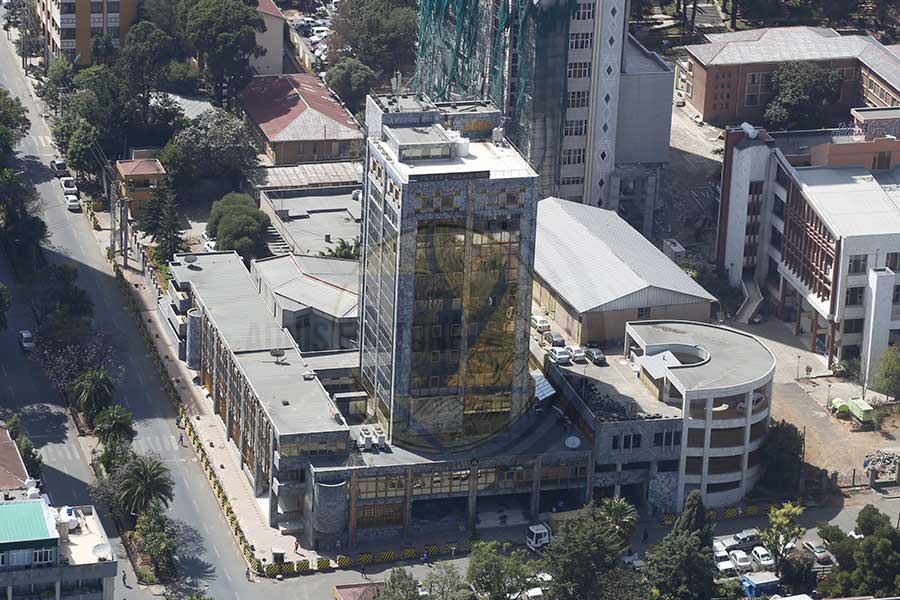
Radar | Sep 27,2020
Feb 9 , 2019
By
Zimbabwe has seen one of its most divisive elections, as has the Democratic Republic of Congo. It will be Ethiopia’s turn at a general election just a year from now, in what is believed by many to be the most democratic it has ever had. Thus, the nation can learn from India in how democratic elections can actually be contorted to hurt the national interest.
Satyamev Jayate, meaning “truth alone triumphs”, is the national motto of the Indian republic. However, come elections, the stakeholders of the world’s largest democracy just forget their responsibilities.
Take the case of the executive, of both the federal and state governments, which is in “appeasement mode,” dishing out freebies to farmers, traders and middle-class tax payers without any regard to the economy. Rahul Gandhi, largely believed to be a Prime Minister in waiting without any administrative acumen, has promised a minimum income to eradicate poverty without doing any homework on its economics.
He seems to have borrowed the “Garabi Hatav” slogan of Indira Gandhi, the former prime minister and his grandmother. During her tenure, India slipped into an economic crisis that multiplied inequality and corruption.
Mercifully, the ruling party is thus far quiet on religious propaganda and has lessened its trumpeting of the construction of Lord Ram Temple. It has aptly realised that the Supreme Court, where the matter is pending, is not obliging with an early hearing and decision. Had this not being the case, religious narrative would take precedent over development.
A noteworthy and ground-breaking decision by the federal government on concessions is being shamelessly opposed by various groups that want to practice the caste politics for their political gain, even after 70 years of India’s independence.
Merit has taken a huge hit in this politics of appeasement as the seats and chairs in education and jobs for open categories is below 26pc, whereas the Supreme Court has laid out a limit of 50pc for all sorts of reservations. Groups that want to practice caste politics have joined hands to defeat the present government led by Narendra Modi on platforms of non-issues.
Worse still, many of the opposition leaders are contenders for the Prime Minister’s chair and have corruption cases pending against them, which they claim stem from political vendettas. A recent drama in the Indian State of Bengal is one such example. The Chief Minister conducted a sit-in to block India’s premier investigating agency from conducting the Supreme Court directed investigation into an alleged ponzi scheme.
Another social misfortune has suddenly gained ground. Qualified pseudo-democratic intellectuals are siding with poor and downtrodden victims of government apathy and instigating them against the right-wing leadership. Such characters are labelled "urban nexals", and it is believed that this movement hurts the cause of nation building.
On top of that are lawyer-activists whose job is to file public interest litigation in the courts on every possible decision of the government - be it an appointment of a civil servant or passage of law in the parliament. Who funds their efforts is a matter of research.
The best part of their activism is that when they lose a court case, they have no problem branding the honourable courts and justices and judges as “sold out”. The lawyer-activist menace is for real and is currently bringing disrepute to the Indian justice system as well as overburdening the Indian judiciary that is already reeling under delays.
The media is making hay, while the sun shines as well. There is a huge competition among the plethora of news channels in various languages to dissect and report what is convenient to their bosses. Even the most media illiterate individuals will notice the bias in TV debates and news analysis - such is the state of press transparency.
There are a set of about 50 debaters who go channel to channel on a daily basis, propounding partisan views blatantly to the point that an average viewer now knows what a debater is going to say before they open their mouths. Most unfortunate is that the news channel hosts also contribute by “managing” the debater’s view.
The leader of world’s richest democracy is busy practicing disruptive politics under the nameplate of nationalism. On the other hand, the world’s largest democracy is reeling under the ills of democracy. Although India has improved its literacy and poverty ranking globally, the vote bank polities will continue, and narrow political gains will be more important than nation-building during the election season.
On average, Africa’s experience with democracy is relatively new. It is besieged under authoritarian rule and certain African democracies are facing nothing less than an “ethnocracy”.
A democracy matures when liberal and democratic institutions flourish. However, while traversing the path of maturity, democratic evils flourish as well. These evils try to shape governance and public good. Indian democracy is passing through this conundrum. It is very easy to say that the nation is a great democracy and it will sustain the short-term phenomena. Nevertheless, only a sound, well thought and nationalist vote will see India through.
PUBLISHED ON
Feb 09,2019 [ VOL
19 , NO
980]

Radar | Sep 27,2020

My Opinion | Oct 05,2019

Radar | Sep 08,2024

Life Matters | Aug 14,2021

Fortune News | Mar 05,2022

Radar | Oct 01,2022

Exclusive Interviews | Jan 05,2020

Fortune News | Feb 19,2022

Editorial | Feb 15,2020

My Opinion | Jun 18,2022

Photo Gallery | 176084 Views | May 06,2019

Photo Gallery | 166296 Views | Apr 26,2019

Photo Gallery | 156732 Views | Oct 06,2021

My Opinion | 136876 Views | Aug 14,2021

Dec 22 , 2024 . By TIZITA SHEWAFERAW
Charged with transforming colossal state-owned enterprises into modern and competitiv...

Aug 18 , 2024 . By AKSAH ITALO
Although predictable Yonas Zerihun's job in the ride-hailing service is not immune to...

Jul 28 , 2024 . By TIZITA SHEWAFERAW
Unhabitual, perhaps too many, Samuel Gebreyohannes, 38, used to occasionally enjoy a couple of beers at breakfast. However, he recently swit...

Jul 13 , 2024 . By AKSAH ITALO
Investors who rely on tractors, trucks, and field vehicles for commuting, transporting commodities, and f...

Oct 18 , 2025
The political establishment, notably the ruling party and its top brass, has become p...

Oct 11 , 2025
Ladislas Farago, a roving Associated Press (AP) correspondent, arrived in Ethiopia in...

Oct 4 , 2025
Eyob Tekalegn (PhD) had been in the Governor's chair for only weeks when, on Septembe...

Sep 27 , 2025
Four years into an experiment with “shock therapy” in education, the national moo...

Oct 18 , 2025 . By NAHOM AYELE
In a sweeping reform that upends nearly a decade of uniform health insurance contribu...

A bill that could transform the nutritional state sits in a limbo, even as the countr...

Oct 18 , 2025 . By SURAFEL MULUGETA
A long-planned directive to curb carbon emissions from fossil-fuel-powered vehicles h...

Oct 18 , 2025 . By BEZAWIT HULUAGER
Transaction advisors working with companies that hold over a quarter of a billion Bir...